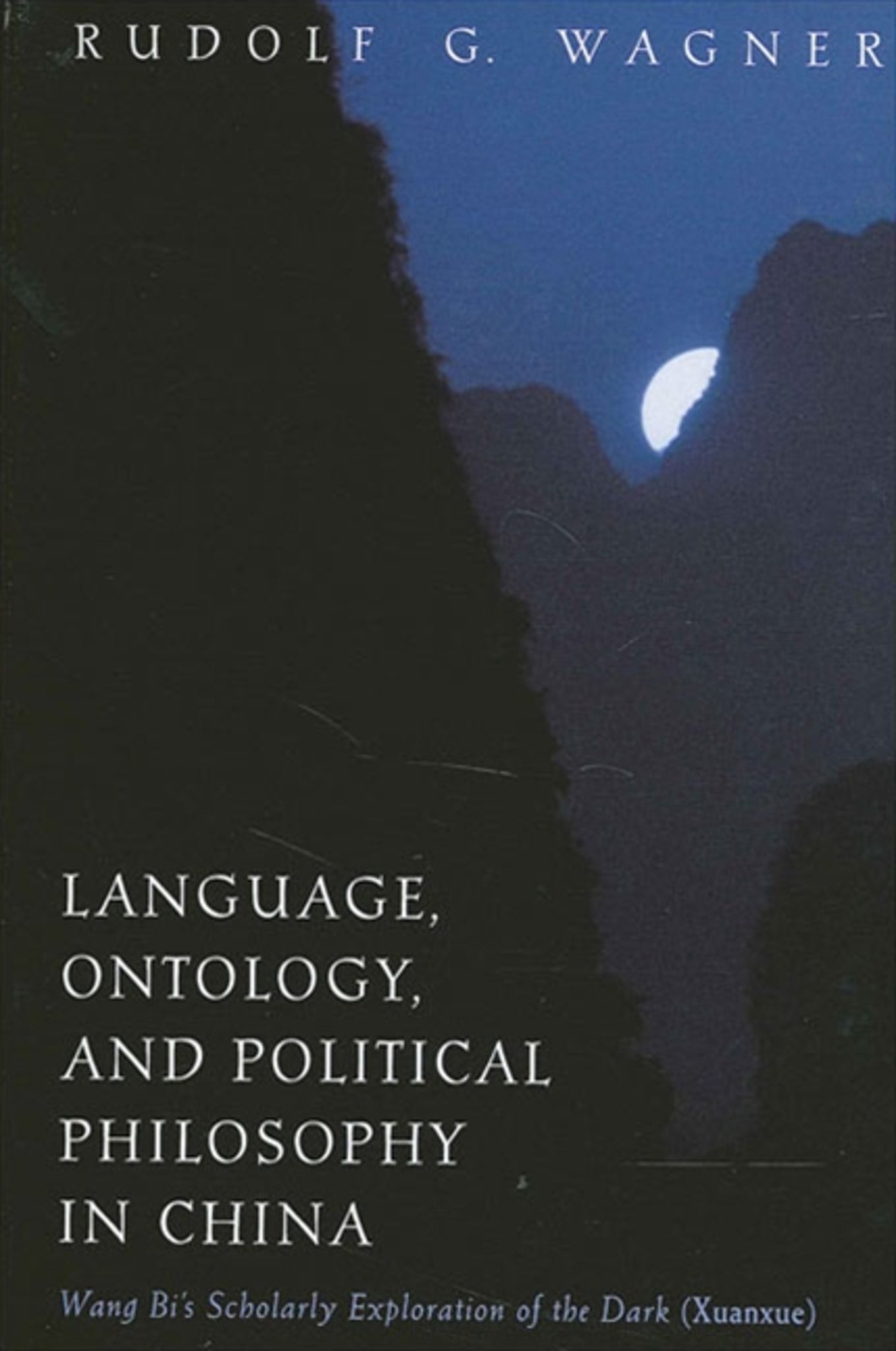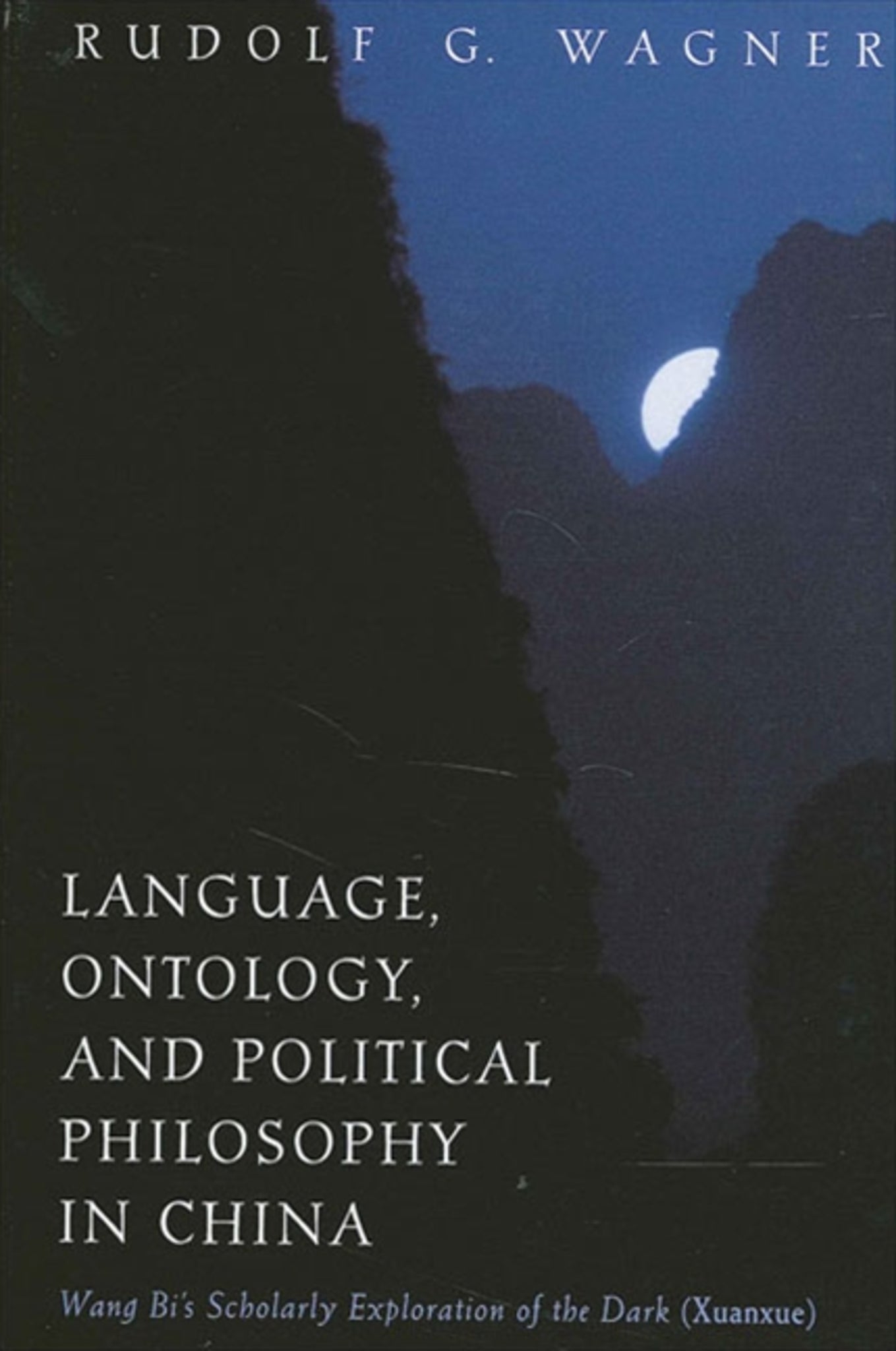We're sorry. An error has occurred
Please cancel or retry.
Language, Ontology, and Political Philosophy in China

Some error occured while loading the Quick View. Please close the Quick View and try reloading the page.
Couldn't load pickup availability
- Format:
-
16 January 2003

Explores the thought of Wang Bi, the third-century Chinese philosopher who made brilliant, innovative contributions in an era when traditional intellectual institutions and orthodoxies had collapsed.
With the collapse of the Han dynasty in 220 C.E., an entire system of state and intellectual organization fell apart. The brilliant Wang Bi and his generation of young scholars grew up in a no-man's land without teachers and orthodoxy. Defying the established school divisions, they set out on a vigorous and daring new philosophical inquiry which came to be known as Xuanxue, the "Scholarly Exploration of the Dark." They found "subtle pointers" in the Laozi, the Book of Changes, and the Analects of Confucius about the inequity of language and the ensuing need to proceed by "subtle" indications that ultimately led to a philosophy of Being.
In this book, Rudolf G. Wagner shows how Wang Bi's sophisticated analysis of "subtle pointers" in the language of the Laozi developed into an ontology that served as the basis for a political philosophy of the ruler/subject relationship and a guide for the public performance of an enlightened ruler. Wang Bi's work initiated the reading of the Laozi, the Book of Changes and the Analects as philosophical texts and has had a lasting impact on Chinese philosophy.


"Wagner … has significantly raised the level of discussion about Wang Bi's philosophy." — Harvard Journal of Asiatic Studies
"…this is a valuable volume, which advances considerably our understanding of an important aspect of Chinese religious history. It should be read and critiqued by all interested scholars." — Journal of Asian Studies
"This book is truly important—Wang Bi is the most significant Chinese philosopher of his era." — James Miller, coeditor of Daoism and Ecology
Preface
Introduction
1. Discerning the That-by-Which: The Language of the Laozi and the Lunyu
A Plea for a History of Understanding
The Consensus: The Ineffability of the Sage’s Thinking
The Radical Position
Developing Reading Strategies
The Discussion about Language and the Thinking of the Sage in Wei
The Structural Contradiction of the Confucius Texts: Talking about That-Which-Is-Dark
The Logical Deduction of the Unnameability of That-by-Which the Ten Thousand Kinds of Entities Are
The Deduction of the Possibility of Limited but Sufficiently Grounded Propositions about That-by- Which the Ten Thousand Kinds of Entities Are
Traces of the That-by-Which Found by the Confucius Texts within the Structures of Discernible Entities: Antinomy and Negation
Grasping Aspects of the That-by-Which
An Explanation of the Images [Xiang of the Zhouyi]
2. Wang Bi’s Ontology
The Framework of Analysis
Wang Bi’s Inquiry into the That-by-Which
Wang Bi’s Approach
The Binary Structural Organization of Entities
The Order of the Ten Thousand Kinds of Entities
The One and the Many
The Dao
The Dark
3. Wang Bi’s Political Philosophy
The Actual and Perpetual Crisis of Human Society
The Causes of the Crisis
Operating the Return: The Sage
Sagely Politics as Public Performance
Wang Bi’s Philosophy: An Ideology?
Notes
Bibliography
Index



